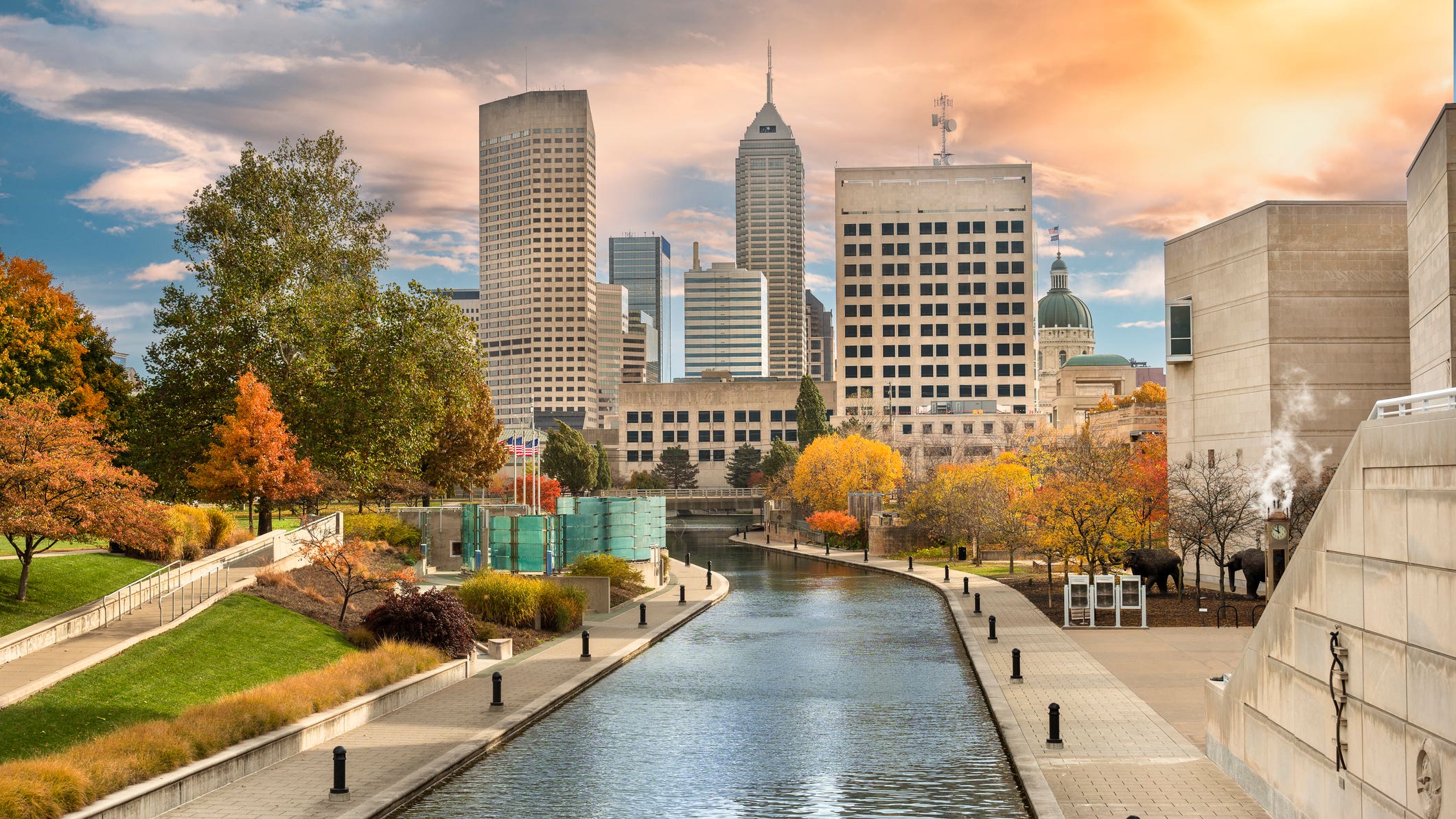Indianapolis housing market: Everything you need to know

As the capital of Indiana and the home of the Pacers, the Colts and the Indy 500, Indianapolis has a lot going for it. However, Indy remains surprisingly homeowner-friendly, with housing prices well below the U.S. average. Here’s the scoop on the Indianapolis housing market.
Indianapolis housing market overview
According to Redfin data, real estate in Indianapolis is competitive, with for-sale homes receiving an average of two offers. As was the case in many other parts of the country, home prices here hit a peak in summer 2022 before falling for six straight months as mortgage rates rose. But it’s also a very affordably priced market — even at that peak, the city’s median home sale price was well below the national median price. That makes Indy an attractive market for those looking to buy a home in a major U.S. city, and especially budget-conscious first-time buyers.
Indianapolis housing trends and stats
- In April 2023, the median sale price of a home in the Indianapolis metro area was $290,000, according to the Metropolitan Indianapolis Board of Realtors (MIBOR). That’s up 5.5 percent from March. However, it’s considerably lower than the National Association of Realtors’ nationwide median sale price of $375,700.
- Single-family homes are selling lightning-fast, with a median 7 days on market in April, per MIBOR data. Again, that far outpaces the nationwide average of 29 days (in March, per NAR).
- Inventory is at a scant 1.1-month supply. A balanced market typically has a 5- or 6-month supply, meaning at the moment there are not nearly enough houses to meet demand.
- There were 2,447 closed home sales in April, which was down 8.3 percent month-over-month.
- Redfin’s March data shows a 97.9 percent sale-to-list ratio, meaning houses are selling for just under their asking price.
- Closing costs in Indiana are among the lowest in the country, according to ClosingCorp, averaging less than 1 percent of the home’s purchase price.
Should you buy or sell in the Indianapolis housing market?
If you’re not sure if it’s the right time to buy or sell, here’s what to consider.
If you’re a home seller
Indianapolis’ 1.1-month supply of housing inventory indicates a serious seller’s market, so now might be a good time to list your Indy home. The metro area’s super-short days on market means all signs point to a quick sale. Plus, late spring and early summer are traditionally the best times to sell a home, so you may be able to benefit from seasonal patterns too.
Despite the positive climate for sellers, it’s important to have a good understanding of how much your home is worth before you hit the market. An experienced local agent can help you set the right price to attract as many buyers as possible.
If you’re a homebuyer
If you dream of homeownership but don’t have a lot to spend on a house, Indianapolis could be the place for you. With median home prices far below the national average, your dollar will stretch further here than in many other major U.S. cities. And if you’re a first-time homebuyer in Indiana, the state offers assistance programs that can help you cover a down payment and closing costs
With that said, there are a few things buyers should consider carefully right now. For one, mortgage rates are still high, which will cut into your home budget. Getting preapproved for a mortgage can help you understand how much house you can afford by showing you how much a lender is likely to loan you for the purchase. Finally, if you’ve moving from out-of-town, make sure you’re familiar with the cost of living in Indianapolis and how it compares to your hometown.
Indianapolis housing market predictions
Predicting the future is always tricky, especially with the housing market being so volatile recently. When you hear about home values declining and the market slowing down, you might start to wonder if a housing crash is coming. The good news is, experts don’t foresee a housing crash — in Indianapolis or anywhere in the U.S. They do, however, expect a slower-than-normal spring housing market across the country. Consider it a course correction, with things finally cooling off after being overheated for so long.
Find an Indianapolis real estate agent
The housing market is complex and ever-changing, even in an affordable area like Indianapolis. It’s a good idea to partner with a real estate agent, and especially one who knows the area of Indy you’re interested in well. Agents can help you understand the latest market conditions, determine an appropriate offer or asking price and negotiate on your behalf.
Not sure how to get started? Ask your friends, family and neighbors if they have recommendations. When you’ve found a few that seem like they might be a good fit, interview them to learn more about their experience and working style. An agent who “gets” you has a better chance of getting you what you want in the deal.
FAQs
-
Indianapolis, like much of the rest of the country, experienced record-high real estate prices in the middle of last year. Since then, median sale prices and the number of closed sales have both dropped. Even so, homes still sell quickly and inventory is very low, so buyers should be prepared for some competition.
-
No. In fact, the latest data from the Metropolitan Indiana Board of Realtors shows that the metro area has just over a one-month supply of housing inventory — much lower than the five to six months needed for balance — which suggests that Indy is actually a relatively strong seller’s market.
Why we ask for feedback Your feedback helps us improve our content and services. It takes less than a minute to complete.
Your responses are anonymous and will only be used for improving our website.
You may also like

Homeowners insurance vs. co-op insurance vs. condo insurance





